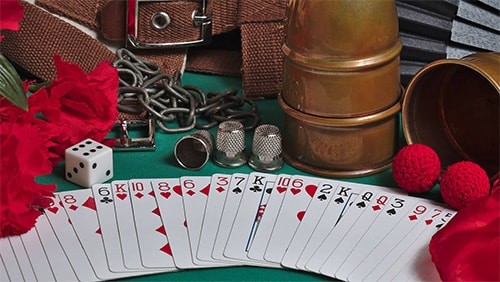Poker on television can be as successful as the main direction of the action or as a sideshow to the dramatic plot. Sometimes, however, it can be both. One such occasion where a series took a departure from the usual location was when the hit TV series Frasier skipped Café Nervosa for the front room as a home game became the iconic setting for one of the series’ greatest comments on mental acuity and how intelligence is not solely reliant on academic education.
 To set the scene, Frasier Crane, an eminent psychiatrist, is hosting his KACL Radio show one day when he tells his producer that he can tell a criminal from any distance, something said producer failed to do when she was grifted on her way to work.
To set the scene, Frasier Crane, an eminent psychiatrist, is hosting his KACL Radio show one day when he tells his producer that he can tell a criminal from any distance, something said producer failed to do when she was grifted on her way to work.
A wager is quickly struck when Frasier’s father, a retired police detective, challenges his Harvard-educated son to pick out the former convict among the three guests he’ll welcome to their apartment later that night for a game of poker.
The poker night quickly arrives – each episode of Frasier was a miniature masterpiece of tightly plotted comedic drama in 22 minutes – and Frasier’s challenge is set. His father Martin has been joined by two cops and one friend who did time in prison, but who is it – Frank, Linda or Jimmy?
As is very typical of anyone who plays poker for the first time, Frasier (a mere observer to the game in this case) can’t help but look for clues that aren’t there and is second-guessing his every theory while fitting none of his suspicions on any genuine evidence. His preconceptions of characteristics are evocative of the prejudice that non poker playing members of society often put upon those who have regularly looked down at two cards and wagered money on the outcome of their ability to match up with the five community cards.
As the game progresses, Frasier gets mangled up in his own theories and eventually guesses the wrong player entirely. Changing his mind as quick as he does his delivery, the psychiatrist then picks another name, only to get it wrong again, the only person he doesn’t name being revealed as the criminal.
We won’t spoil the ending for those of you who haven’t seen Can’t Tell a Crook By His Cover, but the nature of the episode sees things brought full circle in a delightful ending that brings the character’s prejudices back on themselves, as is so often done brilliantly in the much-missed series.
The notion that a classical education can’t give anyone an advantage at being able to spot a certain character at a poker table is one that has real legs and is, in microcosm, a regular theme that Frasier returns to over all 11 of its seasons.
The series often sets Frasier Crane up as the fall guy, hoist by his own petard and damned by his assumed intelligence when real-world nous counts for more in many of the common situations he finds himself in during his life, where academia can no longer bridge an emotional gap, mental gap or in this case a gap of perception. The inexperienced poker novice Frasier proves that his reading ability, at the poker table at least, is way behind that of his less-educated detective Dad.